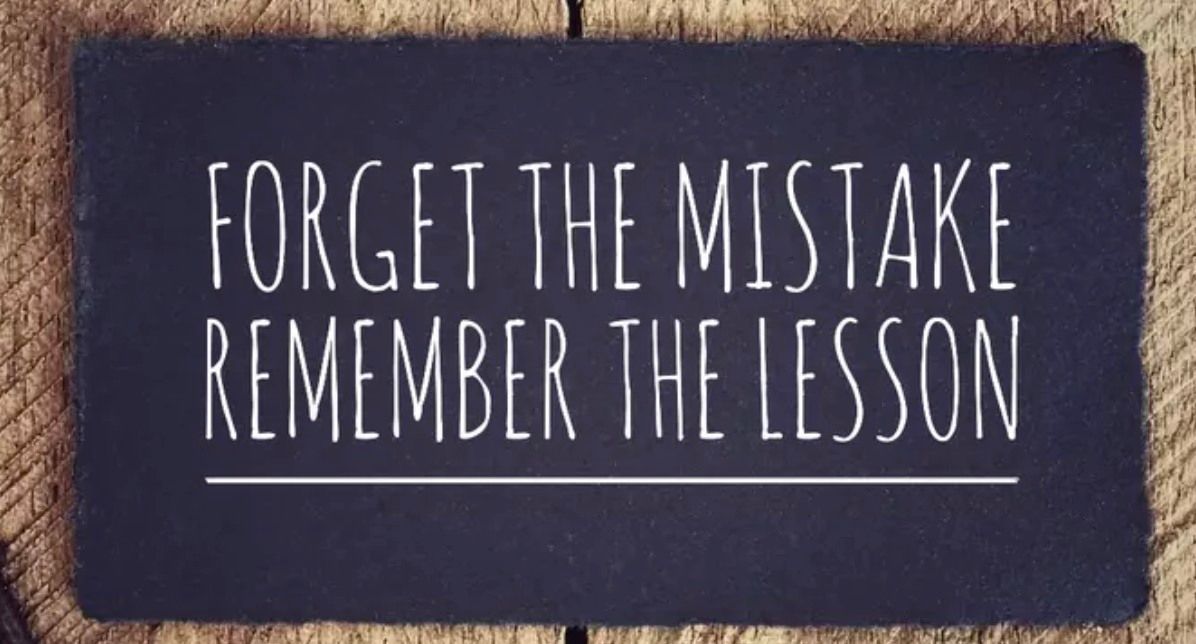
Welcome to Question of the Day #386
EyeTools Question of the Day #386
I recently opened a community eye care practice. I've noticed that a lot of mistakes have been made and these have cost my business money and damaged its reputation. Mistakes like the wrong heights for varifocals leading to expensive remakes, tints not being dark enough for the patient’s expectations, clinical records being misplaced, and appointment slots being double booked. Do you have any tips on how I can reduce the number of mistakes being made?

One of my favourite sayings is:
Mistakes make the best teachers.
But I would expand this by adding that mistakes make the best teachers if the people learn from the mistake and steps are taken to avoid the mistake from happening again. I call this ‘mistake analysis'. In order to be able to use mistake analysis it is important that practice staff are comfortable in owning up to a mistake.
The ‘mistake owner’ is obvious when it comes to something like an incorrect fitting height but there are other mistakes that can remain hidden. An undiscovered mistake means it is very likely to happen again. It is important that as the practice owner you establish a culture where staff are happy to volunteer that they have made a mistake. You have to lead by example. If you make a mistake own up to it. You don't want to experience the same mistakes over and over again. Above I used the term ‘mistake owner’. If you can develop a culture where all the staff own the mistake this will help in group learning and future mistake avoidance. Don’t blame anyone. I used to work in the leadership team of a large organisation that claimed a blame-free culture except that whenever something went wrong the first thing that the senior leaders did was look for someone to blame.
Of course, this lead to a culture in which people tried to hide their mistakes and there was no learning. The same mistakes kept happening. After a mistake is made it's easy to react quickly and point fingers at someone responsible for the problem. Don’t do this. No one likes to be blamed for a mistake. No one likes to be in the spotlight for a mistake. Who caused the mistake is not the main point. Overcoming the mistake as a team will help everyone learn from the challenge. Then conduct a mistake analysis. This may take 30 seconds or several hours depending on the nature of the mistake. The short version of a mistake analysis is making sure you understand what went wrong and what action you need to take to prevent it from happening again. So for example,
when a patient can’t get on with their new varifocals and you identify incorrect fitting heights. Your plan of action is to give all the staff some extra training in measuring heights, observe each person taking the measurements and then check them yourself. After a few days, everyone will be skilled at taking fitting heights and mistakes will be much less likely. Also, you haven't singled out one person. Moving past mistakes is an important part of learning. Dwelling on something for too long will hold you and your staff back. Mistakes are going to happen but the way you handle them, learn from them, and move on will make all the difference for your practice.



1.jpg)



.jpg)
.jpg)



_(Instagram_Post).jpg)
.jpg)
_(1080_x_1080_px).jpg)


with_UP_Cabinet_Minister_Sh_Nand_Gopal_Gupta_at_OpticsFair_demonstrating_Refraction.jpg)
with_UP_Cabinet_Minister_Sh_Nand_Gopal_Gupta_at_OpticsFair_demonstrating_Refraction_(1).jpg)

.jpg)








.jpg)



.png)




